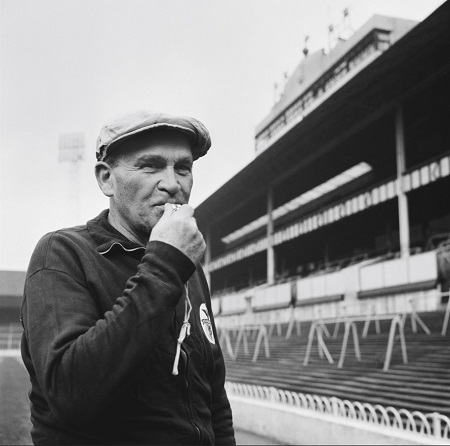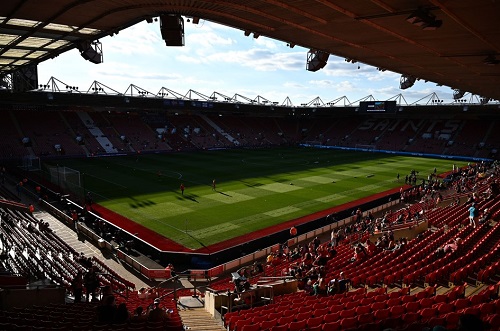 Benfica is an undisputed Portuguese giant who have proved their historical superiority in the domestic league by lifting the title 38 times; more times than any of the other distinguished names in the “Big Three”, FC Porto (30), and Sporting CP (20). Besides that, their youth academy is highly regarded as one of the best in world football with a track record of churning out top talents like João Félix, Rúben Dias, and Bernardo Silva.
Benfica is an undisputed Portuguese giant who have proved their historical superiority in the domestic league by lifting the title 38 times; more times than any of the other distinguished names in the “Big Three”, FC Porto (30), and Sporting CP (20). Besides that, their youth academy is highly regarded as one of the best in world football with a track record of churning out top talents like João Félix, Rúben Dias, and Bernardo Silva.
But while Benfica are one of the big favourites to win in Portugal every year, are they similarly expected to clinch any silverware in Europe? The Lisbon club were European Cup winners in 1961 and 1962, breaking the overbearing dominance of Spanish giants Real Madrid in style. However, they haven’t lifted any other European trophies since. Meanwhile, eternal rivals Porto have enjoyed significant success in Europe, including winning the UEFA Champions League and the UEFA Cup/Europa League.
For many superstitious observers, Benfica’s misfortune at missing continental glory by a whisker – losing no fewer than eight finals over the last six decades – could only be the result of one thing: Béla Guttmann placing a curse on the Portuguese team.
Many sports industry experts, including Kate Richardson believe curses are mainly superstitions, and don’t necessarily determine the outcome of the games of teams. However, they believe these curses will start influencing the results of matches once the players and other stakeholders start to believe in them. Meanwhile, Richardson is a tipster with ample experience in UEFA Europa League predictions. You can follow her on MightyTips for betting tips and recommendations.
What is the curse of Béla Guttmann?
It is the bad luck that haunts Benfica in Europe, supposedly as a result of a spell cast by their European Cup winning manager. Béla Guttmann was a Hungarian coach who signed a managerial deal with Benfica in 1959. He had survived the Holocaust which killed some of the Hungary-born coach’s family members. Although his methods appeared rather harsh, including sacking 20 players in his first season, the Hungarian tactician is renowned for promoting Portuguese football legend Eusébio to the first-team squad. And Guttmann’s managerial prowess would soon begin to yield positive results in the Portuguese capital.
Only two years into this role, Guttmann led Benfica to win the European Cup after beating Barcelona 3-2 in 1961. The following season, his side faced Real Madrid in the final. Real Madrid fans had mocked Barcelona for losing to Benfica the previous year. But they were no longer laughing after the final. Benfica again won the European Cup, clinching the prestigious trophy for a second successive year after a 5-3 triumph.
But the events that would lead to the famed curse would transpire soon after the Eagles celebrated their back-to-back European feats. Guttmann went to see the newly elected president of the club and requested a pay rise, which one could consider reasonable.
The president denied his request, and in response, the furious Guttmann reportedly placed a curse on Benfica saying his legendary feats at the club would now become a thing of the past: “Not in the next one hundred years will Benfica ever be European champions!” he thundered as he stormed out of the club.
Hence, the globe-trotting Hungarian tactician left Benfica in 1962 to coach Peñarol, a top-tier side in Uruguay. Ever since Guttmann’s curse delivered in a fit of fury, the club have suffered sometimes difficult-to-explain losses in European finals and multiple failures to clinch any silverware, almost as if the outcome of decisive matches was pre-ordained…
The European final failures of Benfica
 Since the legendary manager cursed Benfica, the Portuguese giants have failed to win silverware on the continent after losing eight finals in a row. The most recent was a Europa League final loss against Spanish side Sevilla on penalties (4-2) in 2014. It was the second consecutive defeat in the final of Europe’s second-tier competition, having lost to Chelsea the previous year. On both occasions Benfica were arguably the superior team during the match.
Since the legendary manager cursed Benfica, the Portuguese giants have failed to win silverware on the continent after losing eight finals in a row. The most recent was a Europa League final loss against Spanish side Sevilla on penalties (4-2) in 2014. It was the second consecutive defeat in the final of Europe’s second-tier competition, having lost to Chelsea the previous year. On both occasions Benfica were arguably the superior team during the match.
Other European defeats have come thrice against Italian sides, AC Milan (twice) and Inter, with one loss each against Manchester United and PSV Eindhoven in the European Cup. As well as the above-mentioned Europa League final defeats, in the competition’s previous guise as the UEFA Cup, they lost another final to Anderlecht.
The great Eusébio even visited the gravestone of Guttmann and prayed for forgiveness prior to the 1990 European Cup final against AC Milan. To no avail, as the Italians ran out 1-0 winners.
The defeat to Inter
Their 1965 defeat to defending champions Inter Milan was the second of three defeats in the decade when the Portuguese side were on the brink of European glory. Their first defeat came in a 2-1 loss against AC Milan in 1963 at Wembley. This time around, they made it again to the final and would face the 1964 European Cup winners Inter in San Siro (the Italian side’s home pitch). Only once before had a European Cup final taken place on the home pitch of one of the participating teams.
Both finalists went through three rounds of knockout football (although Benfica had to play an additional round in the preliminary against Aris Binnevoie). Benfica went on to register triumphs over La Chaux-de-Fonds, Real Madrid, and Vasas ETO Győr to reach San Siro. Inter, on the other hand, defeated Dinamo București, Rangers, and Liverpool to reach the same stage.
Inter’s Brazilian winger, Jair, would open the scoreboard in the 43rd minute, and no other player hit the net until the referee blew the final whistle. Being their second defeat in only three years, the loss to Inter must have had a handful of Benfica fans wondering about whether Guttmann’s remarks were taking their toll on the team. Little did they know, the trend of consecutive defeats would continue for six decades (and counting) to come.
Other biggest curses in world football
Meanwhile, Benfica’s “curse” story brings to mind many other supposed “curses” in the footballing world, including:
- The Curse of Garbato
- Derby County’s Romanian Gypsies
- Southampton’s evil spirits at St Mary’s
The curse of Garabato
Benjamin Urrea “Garabato” was one of the owners of the Colombian club side America de Cali. In 1948, he debated alongside other owners on moving into the professional league. During the intense back-and-forth, Garabato was quoted as saying, “If the team is professionalised, I swear to God that it will never be champion.”
The side never became a champion until 31 years afterwards. In 1980, the club conducted an exorcism ritual on the field, which preceded seven Primera A championship titles in 10 years. Nevertheless, some superstitious fans still believe there’s some amount of Garabato’s curse hanging over the team to date.
Derby County’s Romanian gypsies
Derby County ousted a group of Romanian gypsies using part of the land when taking control of a Baseball ground in 1895. The story goes that the initial settlers concocted a curse that the club would never win the FA Cup - a remark that has seemingly held sway since then.
Between 1896 and 1903, Derby County reached three finals without lifting the trophy. They did not reach the final again until 1946. Meanwhile, a representative of the club had met with the gypsies in a bid to neutralise the curse.
Fact: During the 1946 FA Cup final against Charlton, the score reached 1-1 when the football burst. Many onlookers thought that was a sign that the curse had been lifted. Derby County went on to win the match 4-1.
Southampton’s evil spirits at St Mary’s
 Southampton left their former stadium, the Dell, for St Mary’s in 2006. However, the Saints recorded a tough start without a win in their first games. The Saints felt some spirits might be behind their misfortune.
Southampton left their former stadium, the Dell, for St Mary’s in 2006. However, the Saints recorded a tough start without a win in their first games. The Saints felt some spirits might be behind their misfortune.
So they hired Cerridwen “DragonOak” Connelly, a witch and archaeologist. She conducted a Celtic ritual, sprinkling water and urging any evil spirits to depart. Some hours afterwards, the ritual seemed to have worked, as Southampton won on home turf against Charlton.
Conclusion
In the 2023/2024 season, Benfica fell out of the Champions League in the group stages but their luck seemed to have changed after a series of favourable draws saw them to reach the Europa League quarter-finals. They would play Marseille who were having a terrible season, for a place in the last four. But after a 2-2 aggregate score over the two legs, Benfica lost 4-2 on penalties.
While it’s certain that the Eagles will continue to compete in European competitions season after season, what is uncertain is how far they will progress in them and whether they can break Guttmann’s curse before it runs its course in 2062.
Related: “THE GREATEST COMEBACK - from Genocide to Football Glory”

